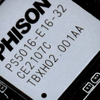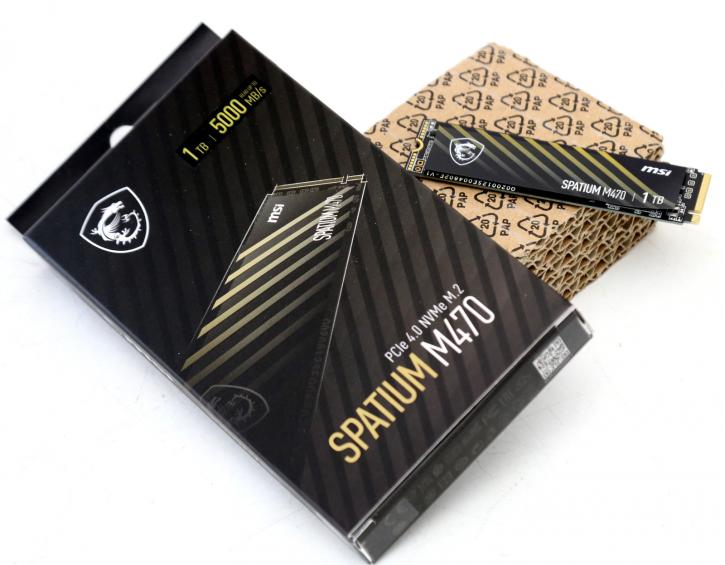Final Words & Conclusion
Final Words & Conclusion
The Spatium M470 combines the Phison E16 controller and Toshiba 96-layer TLC NAND to achieve its high performance. We've seen reviewed samples with this E16 a few times before, and granted; this M470 impresses me for multiple reasons. The SSD shows excellent trace testing results (real-world usage) and remains very fast in linear and sustained loads. NAND runs hot when writing at 4000 MB/sec, so we advise a heatsink or house it under your motherboard heatsink. But the SSD does impress; next to that, 1800 TBW value for endurance kicks ass.
Fantastic Endurance
As an illustration, let's consider the submitted and reviewed 1 TB version, which has a rated 1600TBW (!). We need to totally write the SSD 1600 times x 1TB before the NAND cells begin to fail. If you write 50 GB each day, every day of the year (which is a lot!) mathed that is 50 x 365 / 1000 = 18.25 TB written per year, we have a more manageable amount of data to work with. That means that the 1TB model will have a lifespan of nearly 88 years in that case. Those are the types of metrics we're referring to. Consequently, in terms of longevity and durability, I would not be overly concerned for a regular PC gamer or user (at all).
Performance
The M470's performance throughout the book is really outstanding, especially when it comes to random writes, which are high. Sequential figures are also outstanding, with read and write speeds of over 5 GB/s and over 4 GB/s, respectively. Trace tests, thus real-world usage benchmarks normally are difficult to optimize for. This is why we make use of complex trace tests. Hera as well, the Spatium M470 performs admirably and is among the fastest SSDs we have ever tested. The sequential write performance (copying, an ISO, or Movie) of the Spatium M470 is excellent. The SLC cache, on the other hand, seems to be quite modest. We measure this to be roughly 28 GB, which is significantly less than any competing SSDs and could potentially pose a bottleneck when doing heavy writes for longer sustained periods of time.
Heat
You'll see thermal throttling under burdensome load conditions, but only mildly; we noticed the transfer rate dropping to 3.2 GB/s from 4 GB/s after a few minutes. The SSD, specifically its NAND at such tests, runs hot, though, but the components are designed to function under such temperatures. We always advise you to place an M2 SSD under your motherboard heatsink or apply one manually. This really helps out a lot.
PCIe Gen 4.0
It has to be stated, the SSD is super fast, but PCIe Gen 4.0 SSDs have been designed to be faster. The bottlenecks kick in at that max 7 GB/sec marker. We're looking at an NVMe SSD that reads sustained in that 4~5 GB/sec zone and roughly 3.5 GB/sec for writes. These are still huge numbers, of course, but they could be faster.
Concluding
MSI pulled a rabbit out of a magic head, this SSD might not reveal the M570 peak performance numbers at 7 GB/sec, but at 5GB/sec, it's better and faster in nearly every way. Especially trace testing show excellent values, which is what you're after. The 1 TB Spatium M470 will be available for purchase for $190, which is too much money considering what the competition offers, especially when you purchase a fast PCI-Express 3.0 based M2 unit, you get close to the same performance and performance feel (yeah, that's a real thing). Only very complex workloads would make a bigger difference. Regardlessly, this SSD performs well, really well for what it is.
One thing we cannot forget to be mentioned in this conclusion is endurance; the M470 has a fantastic rating of 1600 TBW for the 1 TB model and 3300 TBW for the 2TB model. That's nearly three times better than what Samsung currently offers in their high-end range. Also, your warranty is covered for 5-years, that to the TBW value reached, whichever once comes first. The M470 definitely highly recommended if you can agree with the somewhat high price level. But I'd happily spend 20 bucks more on an SSD for that excellent performance and TBW value.
Recommended Downloads



